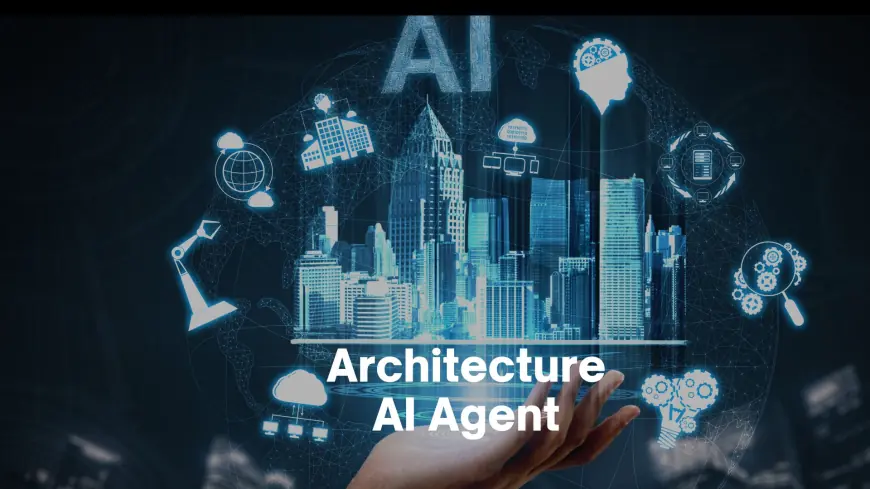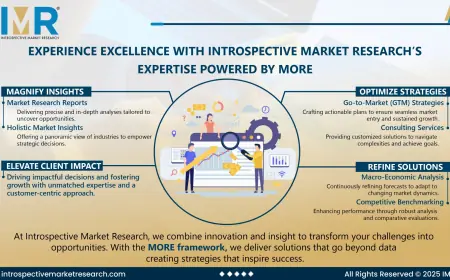Build Future-Ready Spaces With an AI Agent for Architects

Introduction to AI in Architecture
Architecture has always been an industry where imagination meets engineering precision. The spaces we live, work, and gather in are designed not just to be functional, but to inspire and endure. Over the decades, architectural practices have evolved from hand-drawn blueprints to computer-aided design and now to intelligent, adaptive technologies. Among the most transformative innovations is the Architecture AI Agent, a system designed to assist architects in creating designs that are efficient, sustainable, and future-ready.
The influence of artificial intelligence has spread across industries, and architecture is no exception. AI Agents in Construction are already transforming project management, reducing delays, optimizing material use, and improving safety. Similarly, AI Agents for Architects are shifting how design itself is approached, by combining human creativity with machine intelligence. These intelligent agents are capable of simulating real-world conditions, generating multiple design options, and ensuring compliance with complex regulations—all at speeds and scales that far surpass traditional methods.
Why Architects Need AI Agents
Modern architecture is defined by complexity. Cities are growing, environmental sustainability is a pressing concern, and clients demand both creativity and practicality. An AI Agent for Architects can bridge these demands by processing enormous amounts of data to guide decision-making. From analyzing environmental factors such as wind direction and sunlight exposure to optimizing structural efficiency, these systems provide real-time feedback that enhances the architect’s vision rather than replacing it.
By using AI-driven tools, architects are no longer constrained by the slow pace of manual iterations. Instead, they can explore new forms, experiment with materials, and validate design feasibility in record time. This ability to balance artistic ambition with technical precision is why AI agents are becoming indispensable in the creation of next-generation spaces.
The Role of AI Architecture Software
AI Architecture Software is a critical enabler of intelligent design. Unlike traditional CAD or BIM tools, AI-powered platforms offer predictive analytics, generative design capabilities, and immersive simulations. These features make it possible to evaluate designs not just for appearance but also for energy efficiency, cost-effectiveness, and sustainability.
This software is also highly collaborative. Cloud integration allows multiple stakeholders—architects, engineers, contractors, and clients—to work on the same platform with synchronized updates. This reduces miscommunication and costly errors, streamlines project delivery, and ensures that designs are aligned with both client expectations and environmental standards. With AI Architecture Software, the process becomes more agile, creative, and future-focused.
The Role of an AI Agent Development Company
Behind every intelligent system is an AI agent development company that builds, customizes, and deploys AI-powered solutions for architecture firms. These companies specialize in creating tailored AI Agent Development Services that address specific pain points in the design and construction workflow.
The AI Agent Development Process often begins with consulting architects about their challenges, whether related to sustainability analysis, design iteration, or project coordination. Developers then design custom models that address these challenges, using a robust ai agent development framework. The end result is an ai agent development solution that seamlessly integrates into an architectural workflow. Whether deployed as standalone software or through ai agent development platforms, these solutions allow architects to harness AI without requiring deep technical expertise.
Types of AI Agents in Architecture
The use of AI in architecture is diverse, and so are the types of AI agents that support the profession. Generative design agents can create dozens or even hundreds of design options based on specific parameters, such as material availability, cost, and aesthetics. Predictive agents can identify potential risks in construction timelines or budgets before they become critical issues. Conversational agents, developed through AI Chatbot Development, allow architects to access design insights through natural language processing.
Custom ai agent development ensures that these solutions are adaptable. An architectural firm focused on green building, for instance, can create agents specifically designed to evaluate eco-friendly materials, optimize natural lighting, and minimize energy use. Such tailored approaches make AI not just a tool but a creative partner in the design process.
Ai Agent Benefits and Their Industry Impacts
The Ai Agent Benefits extend well beyond efficiency. For architects, AI agents enhance creativity by managing repetitive tasks like compliance checks or structural calculations. They allow professionals to focus on the artistic and human-centered aspects of design. For construction firms, AI Agents in Construction bring improvements in scheduling, safety, and logistics.
The broader Impacts of Ai Agent adoption include the acceleration of sustainable practices and the democratization of advanced design capabilities. Even smaller firms, once limited by resources, can now compete with larger firms by leveraging AI-driven insights. On a societal level, the widespread use of AI in architecture will lead to buildings and cities that are safer, smarter, and more sustainable.
How to Build an AI Agent for Architects
For architecture firms considering how to build an AI agent, the process begins with a clear definition of objectives. Is the goal to reduce design time, improve sustainability analysis, or enhance client collaboration? Once the purpose is established, an ai agent development strategy can be outlined.
This strategy typically includes the following steps: data collection, model training, system integration, and continuous refinement. Developers then design an ai agent development solution that meets the firm’s needs. A robust ai agent development framework ensures scalability, while ai agent development platforms provide the infrastructure for deployment. Collaboration between architects and developers throughout the AI Agent Development Process ensures that the final product complements existing workflows rather than disrupting them.
Enterprise AI Development in Architecture
Enterprise AI Development is the next frontier for the industry. While individual AI tools can revolutionize specific workflows, enterprise-level AI integrates solutions across the entire firm. This allows architectural practices to create a unified, AI-powered ecosystem that spans design, project management, client communication, and construction oversight.
AI chatbot development adds an accessible layer to this ecosystem by simplifying data interactions. With conversational agents, project managers can quickly retrieve insights about project timelines or budget forecasts, while architects can explore design alternatives through simple commands. Enterprise AI development also ensures that firms remain agile in responding to market changes, regulatory updates, and client expectations.
The Future of AI in Architecture
The future of architecture will be characterized by spaces that are not only functional and aesthetically pleasing but also adaptive to human needs and environmental challenges. AI agents will continue to evolve, offering real-time adaptability that responds to changing weather, material availability, or user requirements.
Smart cities, powered by AI-driven design and construction, will become more prevalent. Buildings will interact intelligently with their surroundings, optimizing energy use, reducing waste, and enhancing occupant well-being. Custom ai agent development will ensure that each firm can build agents uniquely suited to its goals, keeping innovation at the heart of architecture.
Conclusion
An AI Agent for Architects represents a new era in architectural practice. From generative design to sustainability analysis, from AI Architecture Software to enterprise-wide integration, the adoption of AI is unlocking new levels of creativity, precision, and efficiency. With the support of an AI agent development company, architects can leverage ai agent development services, frameworks, and platforms to stay competitive and innovative.
The journey toward future-ready spaces is defined by collaboration between human creativity and machine intelligence. Through AI Development, AI Chatbot Development, and Enterprise AI Development, architects are not just designing buildings—they are shaping smarter, greener, and more resilient spaces for generations to come. The partnership between architects and AI ensures that the future of design will be one of boundless innovation and sustainable growth.
What's Your Reaction?
 Like
0
Like
0
 Dislike
0
Dislike
0
 Love
0
Love
0
 Funny
0
Funny
0
 Angry
0
Angry
0
 Sad
0
Sad
0
 Wow
0
Wow
0






















































